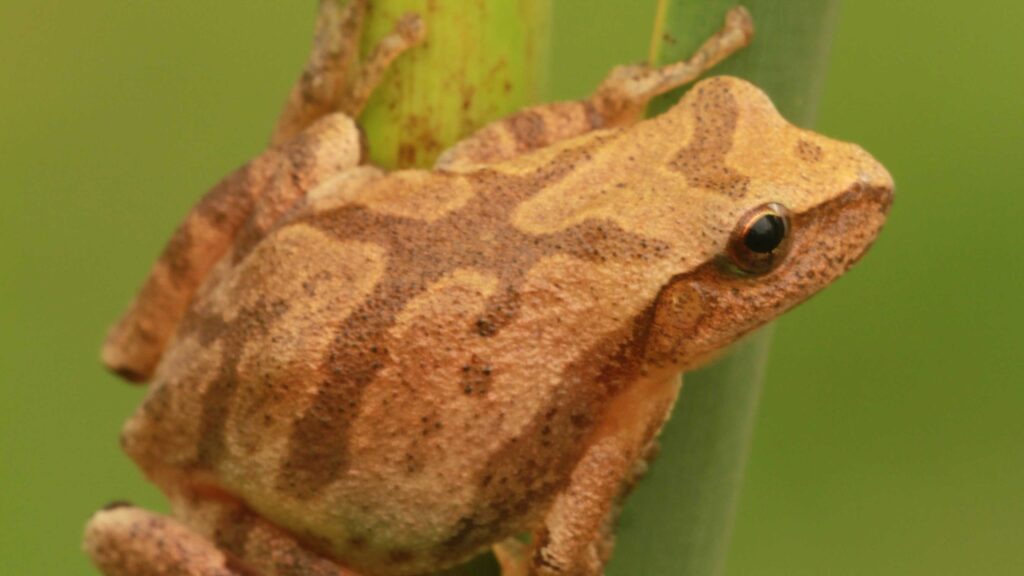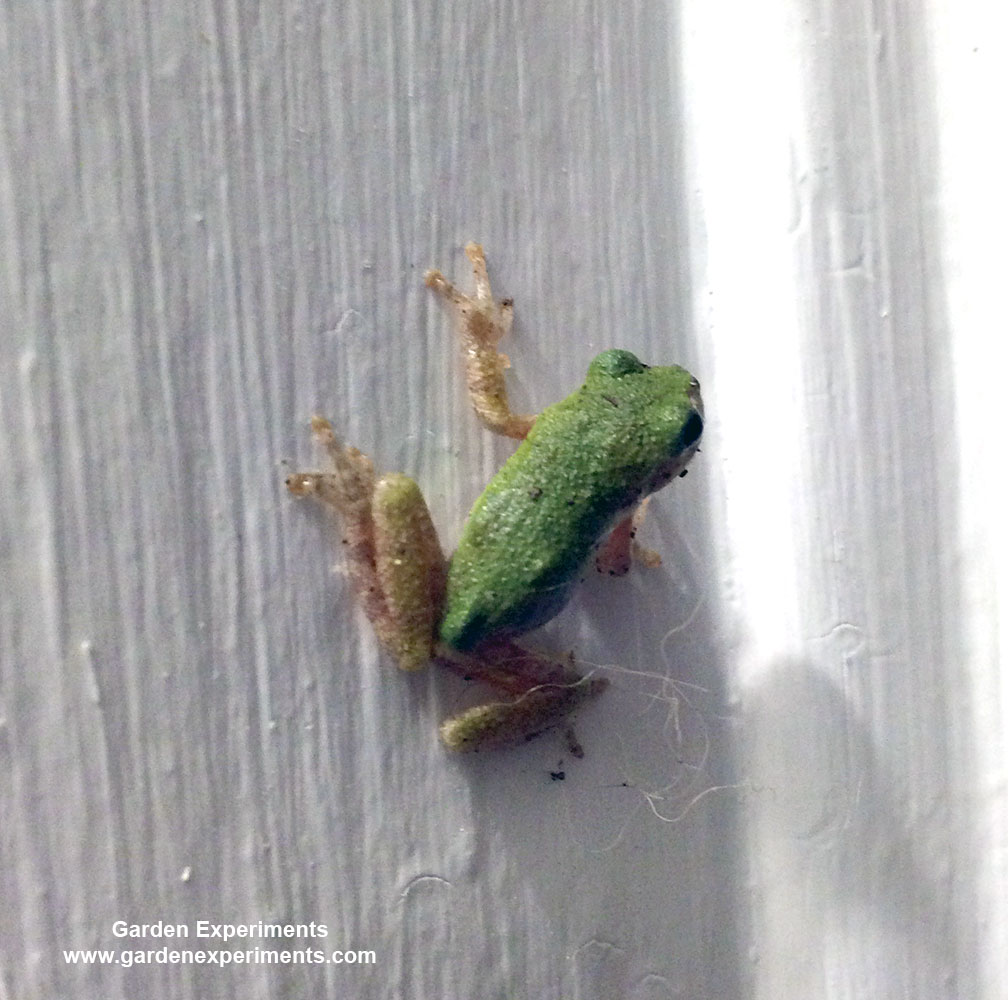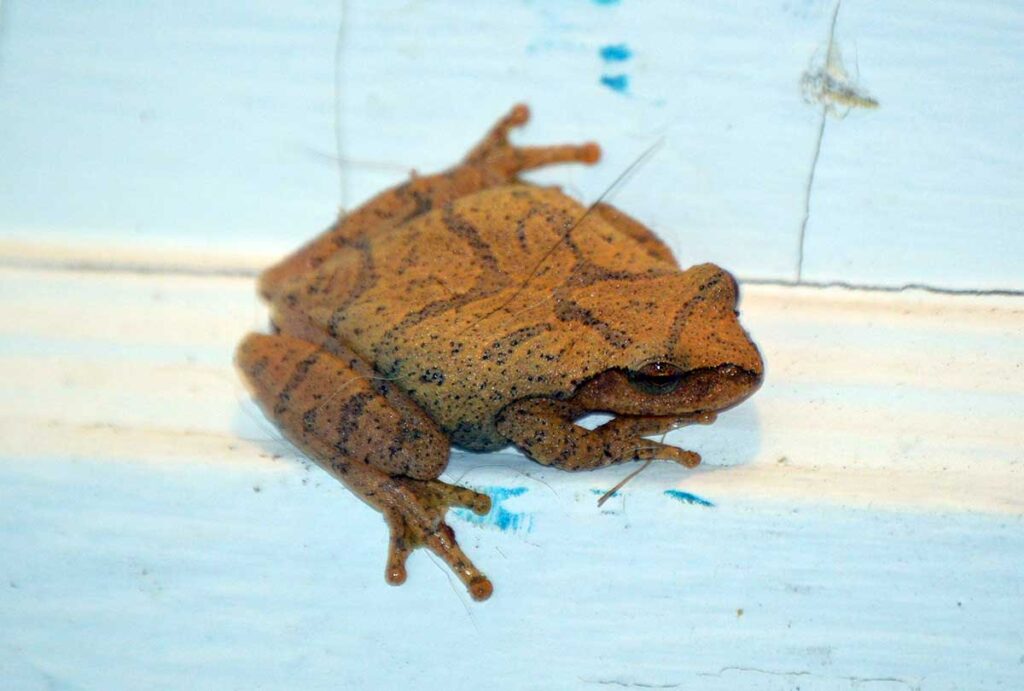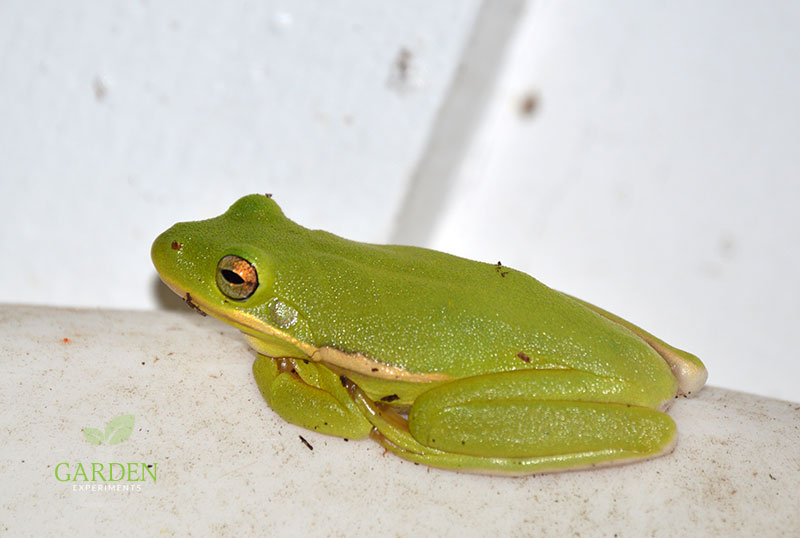Have you ever wondered what happens to the frogs in your backyard in winter? From 64 degrees during the day to 20 degrees at night, the following day is a dramatic change.
Frogs are cold-blooded animals and derive their body temperature from the air surrounding them. So, at 20 degrees, will they freeze and die?
Don’t worry – frogs have a way to cope with freezing temperatures.

Terrestrial Frogs Hibernate in Winter
Frogs have a couple of strategies to deal with freezing temperatures. If you’ve ever wondered ‘where do frogs go in winter?’ – you’ll find them in hibernation!
Many of our terrestrial (land) frogs, such as spring peepers and green tree frogs, hibernate in deep cracks and crevices in trees, logs, rocks, or even deep leaf litter and hide away.
Those frog species that can dig well will hibernate deep in the soil, where they are protected from freezing.
Do Frogs Freeze in the Winter?
Since crevices, leaf litter, rocks, and logs aren’t well protected from freezing temperatures, they may reach freezing temperatures, and the frogs who have taken up residence there will freeze too. But the frogs don’t die – even though ice may form in their body cavities, they stop breathing, and their heart stops beating.
Frogs have high concentrations of glucose in their major organs, which prevents these organs from freezing. As the temperatures warm up, these frozen frogs will slowly begin to move, and they revive.



Aquatic Frogs Hibernate in Mud in Winter
Frogs that live in the water (aquatic frogs), such as the American bullfrog (Rana catesbeiana), hibernate or go into torpor in the water. They spend the winter partially buried in mud or on top of the mud in areas of oxygen-rich waters for the winter. They must have enough skin exposed to the water to get enough oxygen to breathe.
On days when the temperatures rise well above freezing, our southeastern frogs come out of hibernation long enough to sing out loud.
It was warm enough, for long enough this week, that the little frog that came to my door was hopping around looking for food. It brought me joy to see him! Now, back into hibernation, he will go.
Watch a Frog as it Freezes and Defrosts
Check out this video by the Smithsonian Channel – it actually shows a frog becoming frozen!
This video by The Learning Channel has a time lapse of a wood frog defrosting
